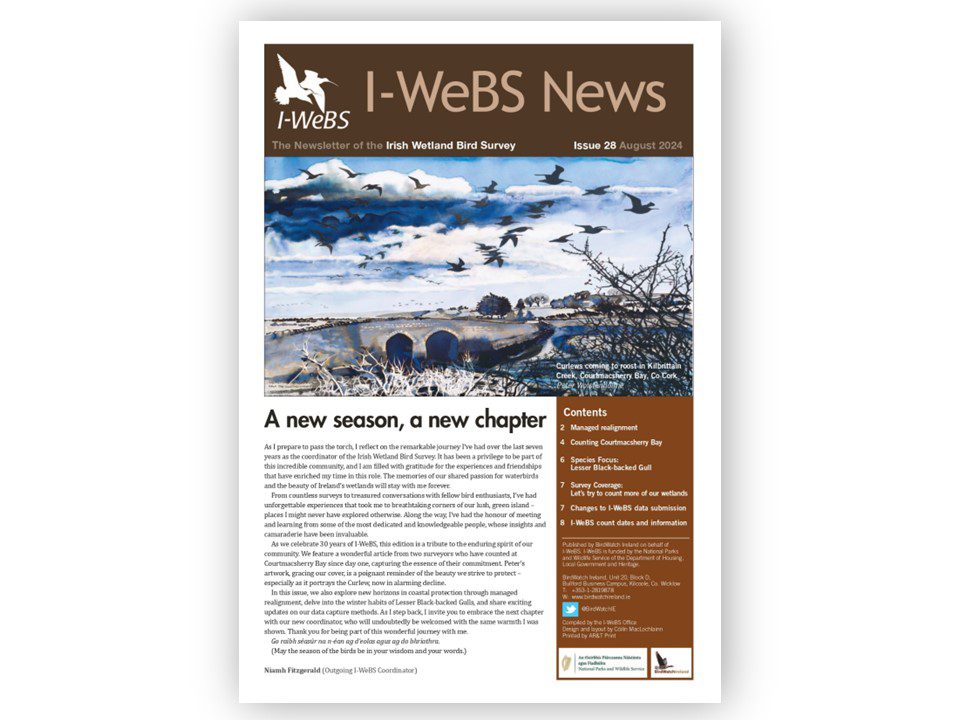
I-WeBS News 2024 (issue 28)
Newsletter of the Irish Wetland Bird Survey (I-WeBS), published ahead of the 2024/2025 winter season.
Each winter over 400 skilled volunteers, NPWS Rangers and BirdWatch Ireland staff monitor wintering waterbird populations at their wetland sites across the Republic of Ireland. The Irish Wetland Bird Survey (I-WeBS) is coordinated by BirdWatch Ireland and funded by the National Parks and Wildlife Service.
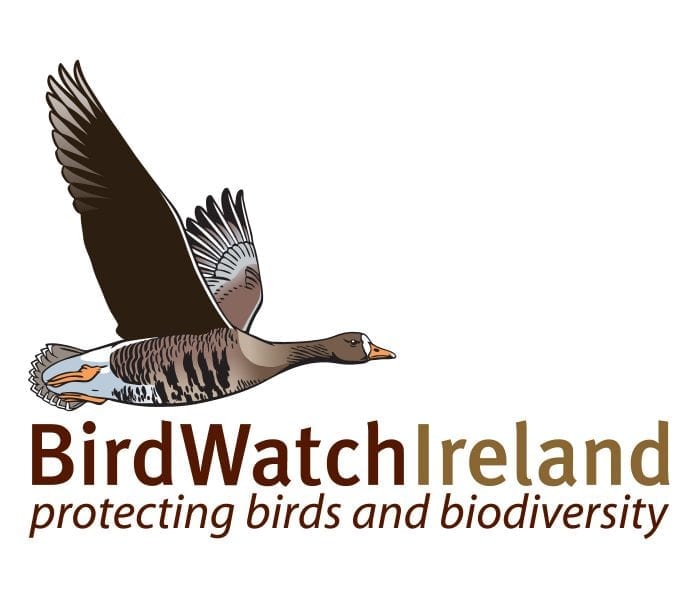
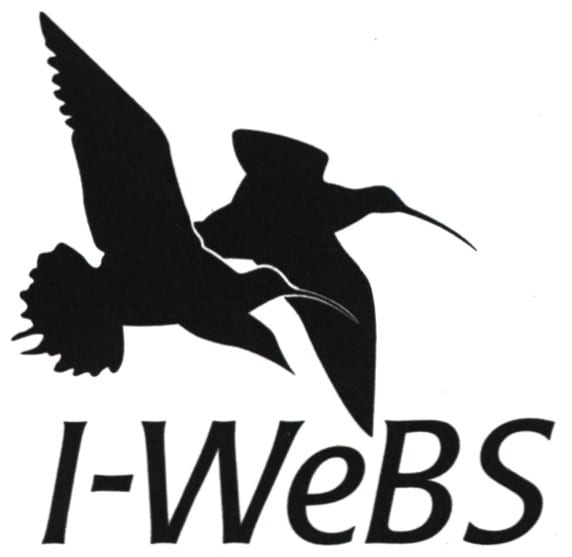

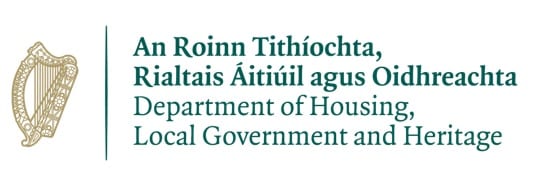
I-WeBS counters record waterbirds at wetland sites across the country during the winter ‘non-breeding’ season (September to March). The type of wetlands surveyed range from wet grasslands to large complex estuaries that hold thousands of birds, and everything in between. We’re always in need of new counters, so if you have a telescope and would like to get involved to help monitor your local waterbirds, see ‘Get involved in I-WeBS’ below.
Hundreds of thousands of migratory waterbirds spend the winter in Ireland, relying on our wetlands to feed and rest. Most of these birds spend the summer nesting in arctic regions (e.g. Greenland, Iceland, Scandinavia, Siberia) but fly south in the autumn as their breeding grounds freeze over. As Irish wetlands are so important for their survival, these wild birds and the habitats they rely on are protected by national and EU legislation. And so, I-WeBS exists to keep track of how these birds are faring. With this knowledge, informed conservation action can be taken.
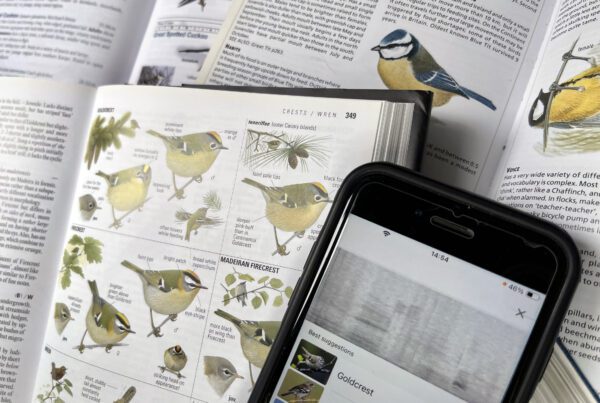 BirdWatch Ireland statement on auto-ID tools
BirdWatch Ireland statement on auto-ID tools
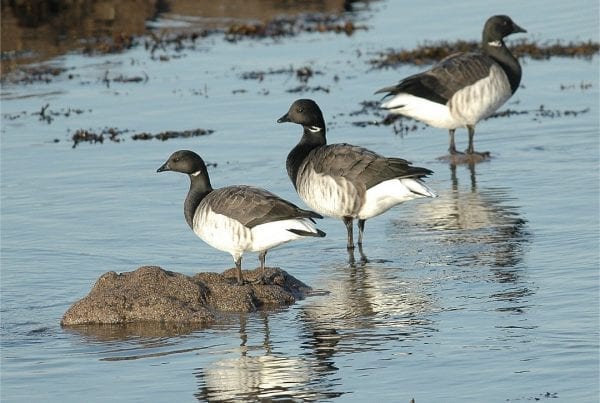 Celebrating the wonders of Irish wetlands this World Wetlands Day
Celebrating the wonders of Irish wetlands this World Wetlands Day

Newsletter of the Irish Wetland Bird Survey (I-WeBS), published ahead of the 2024/2025 winter season.
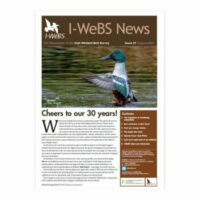
Newsletter of the Irish Wetland Bird Survey, published ahead of the 2023/2024 winter season.
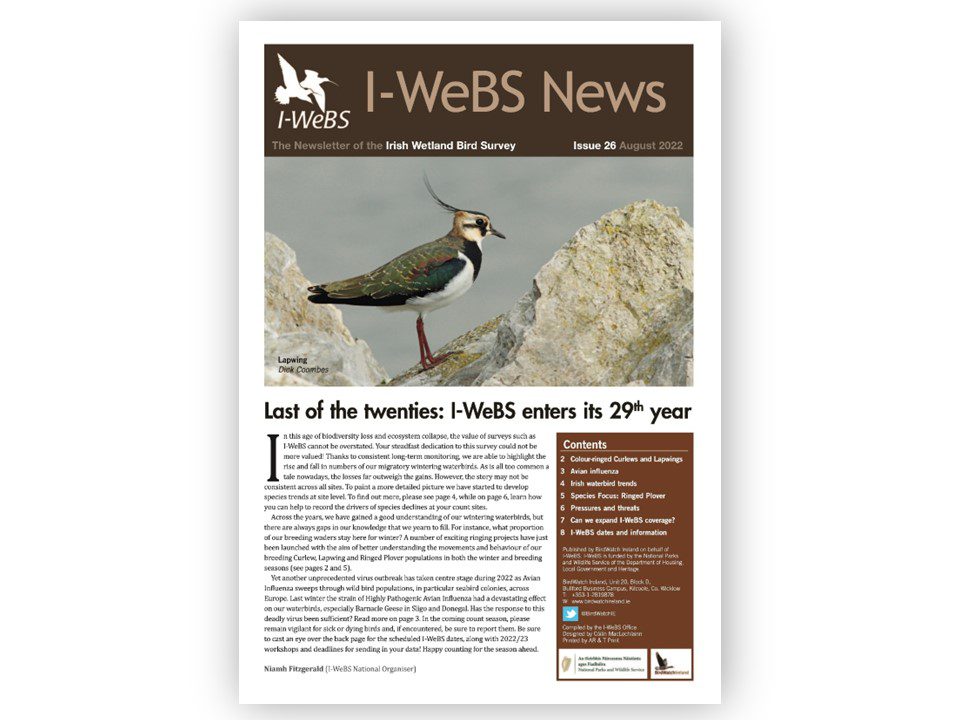
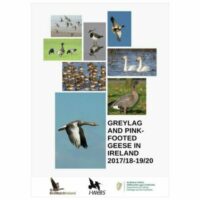
An update of the status of wintering Greylag and Pink-footed Geese in Ireland.
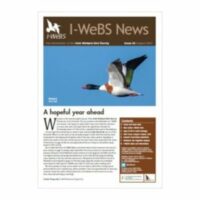
Issue 25 of ‘I-WeBS News’, the 2021 edition of the Irish Wetland Bird Survey newsletter. This issue features the usual Goose and Swan news, a ‘site focus’ on the habitat…
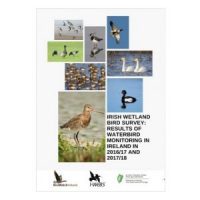
This report summarises the results of the Irish Wetland Bird Survey (I-WeBS) in the winters of 2016/17 and 2017/18, and provides an update on the status of wintering waterbirds and…
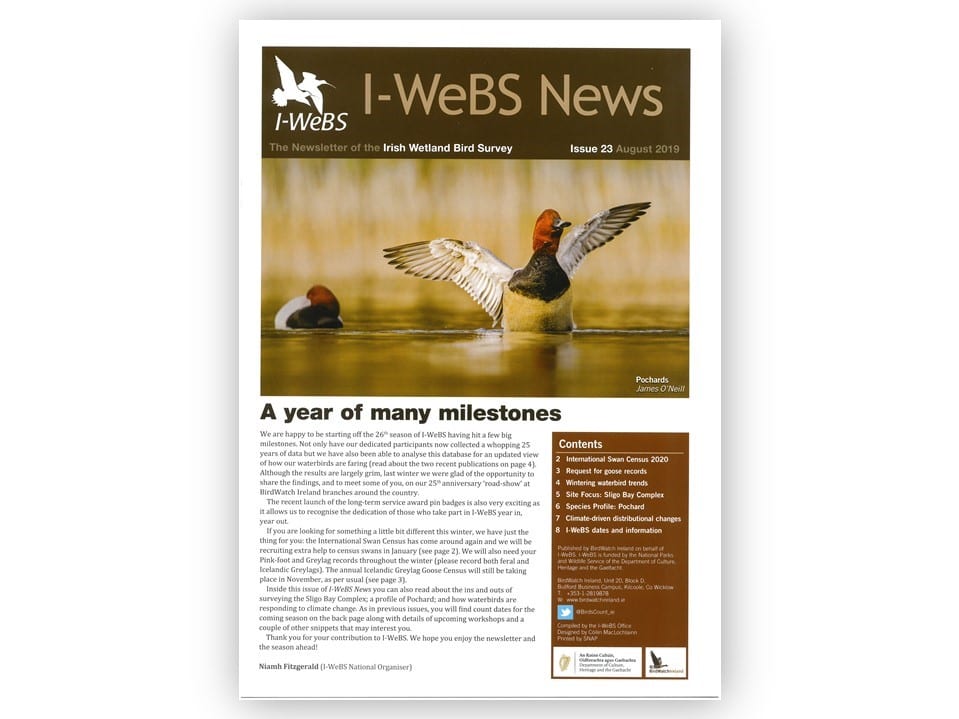
The newsletter for I-WeBS counters, published in August 2019 in advance of the 2019/20 I-WeBS season.